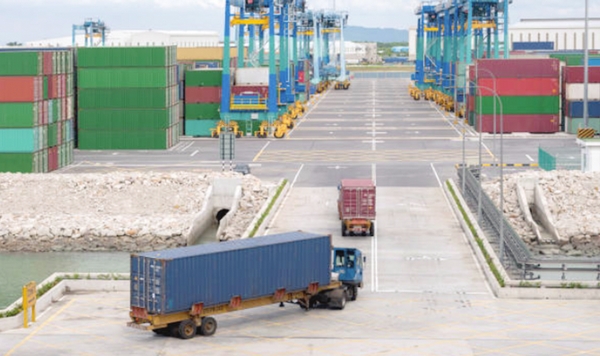Agri products can boost transhipment business at Malaysian ports
Published on: Monday, October 22, 2018

Kuala Lumpur: The Port Klang Authority (PKA) foresees transhipment of conventional cargo, particularly in the dry-bulk segment, as a potential growth driver for the country, says General Manager Captain Subramaniam Karuppiah. He said for Malaysia to develop the potential in the dry-bulk segment, there was the need to set up a food security programme including storage for agricultural goods.
ADVERTISEMENT
This is more so since neighbouring countries mostly import their food grain requirements directly from the source country which can include countries such as Australia for wheat, he told Bernama in an interview. As a transhipment hub with storage facilities, Malaysian ports would be able to store commodities such as wheat from exporting countries which can then be re-exported to third countries from Malaysia, he explained. Subramaniam suggested of this need to emulate the refinery and petrochemical integrated development project (Rapid) in Pengerang whereby refined oil would then be re-exported to third countries.Similarly, a food reserves programme with storage facilities for the region can be set up at local ports.
ADVERTISEMENT
"Why aren't we doing that?" Subramaniam, who has been with PKA since 1994, lamented. "We should pursue this path although the demand for conventional cargo currently is not as high as container volume," he said.
ADVERTISEMENT
However, a food programme for Malaysia needs to be established beforehand. "If Thailand needs wheat, they don't have to go all the way to import from Australia because we would have had it here in our ports had we set up the storage facilities through the food reserves programme," he said. He cited how Malaysia's major competitor Singapore, has more oil reserves rather than grains like rice, maize and wheat. Describing the port of Rotterdam as a fine example of a transhipment port, Subramaniam said it was an all-round port, acting as the centre for agricultural commodities for entire Europe. In Rotterdam, there is a broad selection of agricultural products for storage and transhipment, such as corn, grains, soybeans, as well as, oilseeds such as rapeseed. Stay up-to-date by following Daily Express’s Telegram channel.
Daily Express Malaysia




